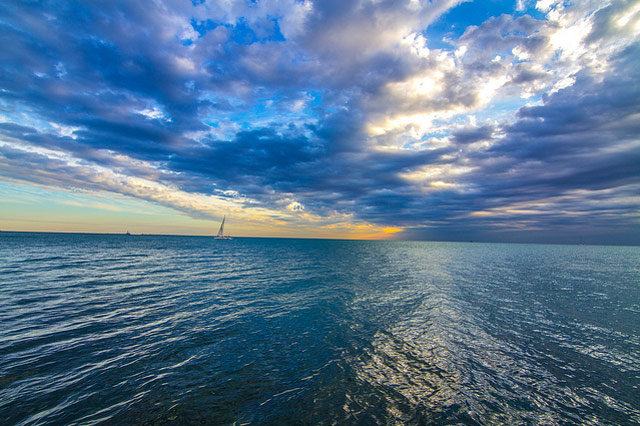New Testing, App Provide A Safer Waterway to Local Beaches This Summer
By Jim Bochnowski in News on May 27, 2015 9:00PM
With Memorial Day marking the traditional start of beach season here in the greater Chicagoland area, local municipalities are making it easier to make sure you can actually enjoy the water without having to deal with those pesky Lake Michigan E. coli flareups.
If you've ever spent time swimming in Lake Michigan, you're familiar with the semi-regular closures for excess bacteria. Generally, of course, the lake is very safe, and a wonderful respite from the horrifying heat of July and August in Chicago. But as a lake that also surrounds a number of industrial cities, there's all kinds of stuff lurking in the water that is potentially dangerous.
As the National Park Service points out, "Lake Michigan can become contaminated by overflows of
sewage and industrial waste, residential storm drain runoff, boat discharge and domestic animal waste," all of which becomes heightened after severe rainstorms. Local and federal officials do their best to regularly monitor beaches to ensure public safety, but information is often slow to get out to the public due to the length of time needed to properly test water and a lack of communication amongst local officials. But that is, luckily, starting to change.
In Chicago itself, the city is beginning a pilot program at Calumet, Rainbow, South Shore, 63rd Street and Montrose beaches to move quickly in assessing the threat of bacteria in the Lake. Previously, the city used a test that took more than 24 hours to assess the E. coli risk in Lake Michigan. Starting this summer, however, the Chicago Park District will work in conjunction with the University of Illinois at Chicago to use a test that takes only a few hours to measure bacteria levels.
According to Cathy Breitenbach, director of natural resources for the parks, "The test that we have been using historically takes a day to get results back, and so that was frustrating because we would be telling what the water quality was like yesterday. We’re adding a new layer because the science is finally here now and we’re able to use a new test that will give us results in a few hours."
Once the test results are known it will become instant knowledge to the public, too, thanks to new technology. The Great Lakes Information Network, in conjunction with the Great Lakes Restoration Initiative, has launched a website and app called "Beachcast," which gives up-to-the-minute updates on conditions across all the beaches in the Great Lakes region.
So have fun out there and watch out for the sharks!
